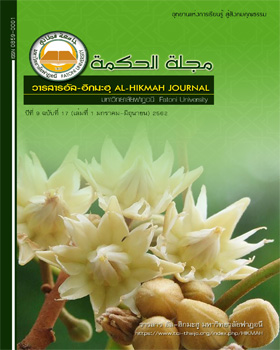The Role of NGOs in the Transformation of Ethnic Tourism in Northern Thailand: A Case Study of the Mirror Foundation, Chiang Rai, Thailand
Keywords:
Non-Governmental Organizations (NGOs), transformation of ethnic tourism, the Mirror FoundationAbstract
Thailand’s ethnic minority groups, popularly referred to as “hilltribes”, are amongst the most marginalized and underprivileged members of Thai society. Their appropriation for tourism development, referred to as ethnic tourism, entails a concerning number of ethical considerations relating to human rights, inequality, exploitation, and cultural commodification. Fundamental transformations to the state and structure of the sector are required and Non-Governmental Organizations (NGOs) need to be recognized as key stakeholders in leading these changes. The objectives of this study are to assess the state and structure of Northern Thailand’s ethnic tourism sector, to determine the key areas of transformation required, to analyze the ways in which the Thai NGO, the Mirror Foundation, is championing these transformations, and to extrapolate the findings to highlight NGOs as key stakeholders in tourism development, particularly in the context of achieving the United Nations 2030 Sustainable Development Goals (SDGs). This study uses a qualitative research approach using key informant interviews and participant observation. The areas of study are at the Mirror Foundation in Chiang Rai and its four beneficiary communities. Eight key-informants directly involved with ethnic tourism were interviewed. Data collected from the fieldwork was processed through a qualitative thematic analysis. This study reveals that the state and structure of ethnic tourism in Northern Thailand is generally predicated on an asymmetrical stakeholder relationship. Transformation in realm of policy, business, and consumption to the sector is necessary and urgent. The Mirror Foundation’s key roles, as implementer, catalyst, and partner, in ethnic tourism can be paired with areas of transformation: policy, business and consumption. These relationships indicate that there is a wide range of NGO roles which can influence sustainable tourism development involving ethnic minority communities. NGOs are capable of carrying out transformation within the ethnic tourism sector in Northern Thailand and beyond.
References
Bread for the World. 2017. Transforming Tourism: Tourism in the 2030 Agenda. Retrieved October 10, 2017, from https://www.transforming-tourism.org/towards-the-transformation-of-tourism.html.
Bread for the World. 2017. Berlin Declaration on “Transforming Tourism”. Retrieved October 10, 2017, from www.transforming-tourism.org/fileadmin/baukaesten/sdg/downloads/Berlin_Declaration.pdf._
Lewis, D. & Kanji, N. 2009. Non-Governmental Organizations and Development. NY: Routledge.
UNWTO. 2017. UNWTO Tourism Highlights: 2017 edition. Madrid, Spain: the World Tourism Organization (UNWTO).
Walters, T. 2016. Research Note: Using Thematic Analysis in Tourism Research. Tourism Analysis, 21, 107–116.



